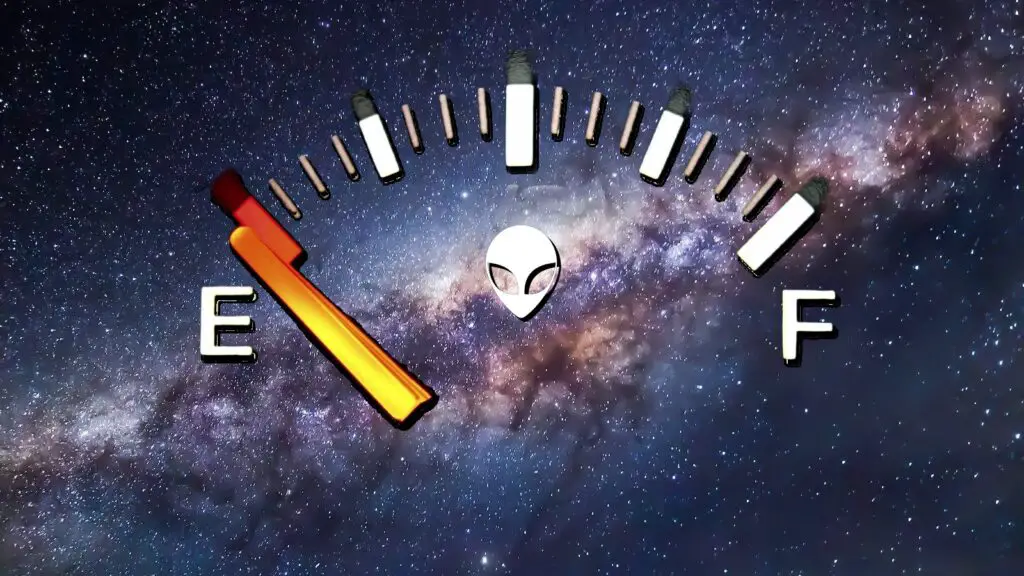In the quest to unravel the mysteries of the universe, one question has perplexed scientists for decades: Why haven’t we been visited by extraterrestrial civilizations, at least to our knowledge?

This enigma, known as the Fermi Paradox, has inspired countless debates and speculations. While the universe is vast and ancient, suggesting it should be teeming with advanced alien life, the evidence of their existence remains conspicuously absent.
The Stagnation or Collapse of Advanced Civilizations
A new hypothesis proposed by astrobiologists Michael Wong of the Carnegie Institution for Science and Stuart Bartlett of the California Institute of Technology offers a thought-provoking explanation. Their hypothesis suggests that advanced civilizations may be destined for stagnation or even collapse due to a fundamental crisis: the unsustainable demand for energy as they grow in scale and technological prowess.
Astronomers discover the largest black hole ever and it can fit 30 billion suns
As civilizations expand and evolve, they inevitably encounter a critical point where innovation can no longer keep pace with their energy needs. This predicament leads to a collapse, unless they choose a different path: embracing equilibrium, even at the cost of curtailing their cosmic expansion. This shift, as proposed by Wong and Bartlett, could make them challenging to detect remotely, potentially explaining the absence of galactic-wide civilizations.
The ‘Superlinear’ Growth of Cities
The basis for this hypothesis lies in the study of the ‘superlinear’ growth of cities. Research in this field has demonstrated that as cities expand, their size and energy consumption follow an exponential trajectory, ultimately culminating in singularities—rapid growth crashes followed by potentially civilization-ending collapses.
The critical moment, as Wong and Bartlett theorize, occurs when a planetary civilization transforms into a virtually connected global entity, akin to a massive, singular city. At this juncture, the time scale for innovation becomes smaller than that of the singularity-interval, leading to an ‘asymptotic burnout.’ These civilizations, teetering on the brink of collapse, would release vast amounts of energy in a wildly unsustainable manner—making them, paradoxically, easier for us to detect.
A Glimmer of Hope: Homeostatic Awakening
To avoid their inevitable doom, Wong and Bartlett propose an alternative path for civilizations. They could undergo a “homeostatic awakening,” prioritizing societal well-being, sustainable development, and harmony with their environment over unbounded cosmic expansion. While such civilizations might not completely abandon space exploration, they would scale it down to levels that reduce the likelihood of contact with other worlds.
This theory is grounded in our own history, with instances like the reduction of global nuclear arms stockpiles, the healing of Earth’s ozone layer by banning harmful emissions, and international conservation efforts. These “mini-awakenings” have shown that societies can redirect their course toward a more sustainable and equitable future.
A Hypothesis for Discussion
It’s essential to emphasize that Wong and Bartlett’s proposal is a hypothesis, derived from observations of life on Earth and designed to stimulate discussion and further research. It joins a spectrum of scientific and popular suggestions aimed at unraveling the Fermi Paradox, such as the challenges of interstellar travel, potential covert alien visits, or the temporal misalignment of human existence with cosmic neighbors.
In conclusion, the Fermi Paradox remains a compelling and unanswered question in our exploration of the cosmos. While the hypothesis put forth by Wong and Bartlett provides a novel perspective, it also reminds us of the vast complexity that shrouds the existence and behavior of extraterrestrial civilizations.

